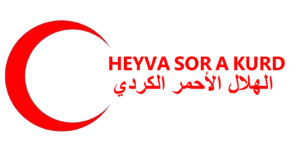Providing materials and laboratory reagents for the main water laboratories in Hasakah, Qamishli, Raqqa, and Tabqa.
As a continuation of the activity to support water laboratories through the partnership with medico international Schweiz, which comes within the context of continuous efforts to improve the quality of water monitoring services by providing the necessary support to the water laboratories affiliated with the General Directorate of Water in North and East Syria, the Kurdish Red Crescent organization delivered laboratory materials and reagents to the main water laboratories in (Hasaka – Qamishli – Raqqa – Tabqa) with the aim of developing the skills of technical staff and raising the efficiency of the laboratories to ensure that the necessary analyses are conducted with greater accuracy and effectiveness.








































